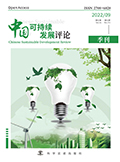

本文基于全球水资源丰富地区的可持续利用案例, 梳理了我国浙江、广东、湖南等地区的水资源开发模式, 以及日本、匈牙利、新西兰、法国等国外典型的水资源生态价值转化的实践经验, 对比分析了国内外水资源生态价值向经济价值转化的路径, 并总结了国外水生态经济可持续发展的经验与启示。结果显示, 我国水资源生态价值转化路径呈现三个特征: ①产业多样化与生态经济协同发展; ②政策引导与制度创新发挥关键作用; ③生态修复与可持续发展互利共生。然而, 研究也发现我国在水资源可持续利用方面的产权机制、产业形态与治理效能等仍有很大的提升空间。最后, 借鉴国际经验, 给出了我国水生态经济可持续发展的几点建议: 完善水资源产权制度; 创新 产业融合范式; 强化协同治理效能; 构建可持续投融资体系。这些建议旨在通过制度创新与市场机制优化, 实现水资源生态价值向经济价值的高效转化, 推动水生态经济的可持续发展。
Based on an analysis of sustainable water resource utilization cases in water-rich regions worldwide, this study systematically examines water resource development models in Zhejiang, Guangdong, Hunan, and other provinces in China, alongside the practical experiences of ecological value transformation in Japan, Hungary, New Zealand, France, and other countries. By comparing and analyzing the pathways for converting water resource ecological value into economic value domestically and internationally, the study distills key lessons and insights from global sustainable water ecological economy practices. The findings indicate that the transformation of water resources' ecological value in China exhibits three notable characteristics: ( 1) the coordinated development of industrial diversification and the ecological economy; (2) the pivotal role of policy guidance and institutional innovation; and (3) the synergistic relationship between ecological restoration and sustainable development. However, the study also reveals that significant challenges remain in China’s property rights framework, industrial structures, and governance efficiency concerning the sustainable utilization of water resources. Drawing on international best practices, the study proposes several recommendations for advancing the sustainable development of China’s water ecological economy: (1) refining the water resource property rights system to enhance market-based allocation efficiency; (2) fostering innovative models of industrial integration to promote high-value-added industries; (3) strengthening collaborative governance mechanisms to improve policy coordination and enforcement; and (4) establishing a resilient and sustainable investment and financing system to support long-term development. These measures aim to facilitate the efficient transformation of water resources' ecological value into economic benefits through institutional innovation and market optimization, thereby promoting the sustainable growth of the water ecological economy.